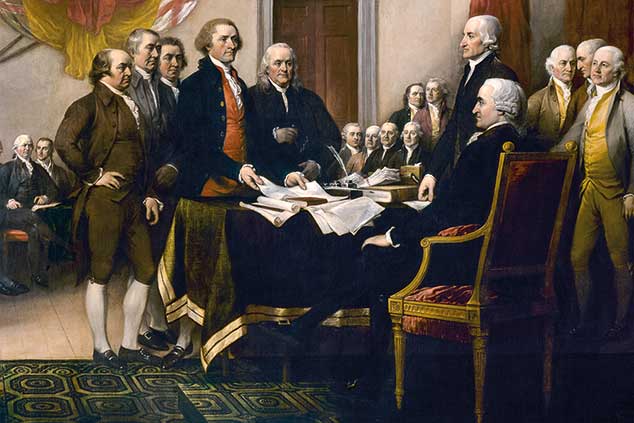
The US declared independence in 1776. That makes it rather older than, say, Germany, which unified in 1871 (and again in 1990) and Italy (declared a nation-state in 1861). You could also argue that, while the US may be younger than many of the other European nations, it’s definitely a much older democracy. Spain and Portugal only wrested democracy from the jaws of authoritarianism in the mid-1970s, for example.
I was reminded of this when I interviewed strategist Russell Napier this week (the article and the podcast will both be out next week). There are a million reasons to think that the era of the dollar being the world’s reserve currency is closer to its end than its beginning (see our cover story, where John Stepek explains all of them). Yet when I asked Napier which paper currency he would hold if he had to hold one and only one for 20 years, he chose the dollar.
Why? Because it is based on a strong democracy, strong institutions and a firm attachment to both the rule of law and the protection of private property, all things that have stood the tests of many unpleasant times. If you are investing for the very long term, says Napier, best do so in countries with democratic institutions that history has shown to be stronger than their occasional lousy leaders.
His second choice, by the way, was the pound – for the same reasons. Brexit might be boring most of us to tears and driving today’s politicians demented. But the vibrancy of the parliamentary debate and the endless recourse to the courts should be seen not so much as a misery as a reminder of the strength and flexibility of our own long-lived institutions.
“Today QE is just another tool hanging off the Velcro on every central banker’s belt”
That said, had I not popped the word “paper” into my question, I suspect Napier would definitely have chosen gold as his favourite currency. John runs through why this makes sense in this week’s cover story. But it is also worth looking at Max King’s piece. In it, he discusses the effects of the reversal of quantitative easing (QE), known as quantitative tightening (QT), on the stockmarket and the odds that the reversal itself will soon be reversed. Bill Bonner has insight here, too. Gone are the days, he says, when QE was considered an emergency hammer that should almost never be used. Today it’s just another tool hanging off the velcro on every central banker’s belt. It will be back. And it will, eventually, give us real inflation (see Zimbabwe a quick reminder of what can happen when money printing gets out of control). Make sure you have some gold. If you haven’t yet used up your Isa and Sipp allowances, might a gold ETF fit the bill?
Finally, while you have the nature of money on your mind, Ben Judge looks at the emergence of cryptocurrencies linked to the dollar (stablecoins). You might wonder what’s going on here. If a cryptocurrency is pegged to the dollar, surely it’s not actually a currency (in the sense that gold is), but just another way, albeit a new and maybe more efficient way, to use and to transfer dollars? I’m wondering with you.